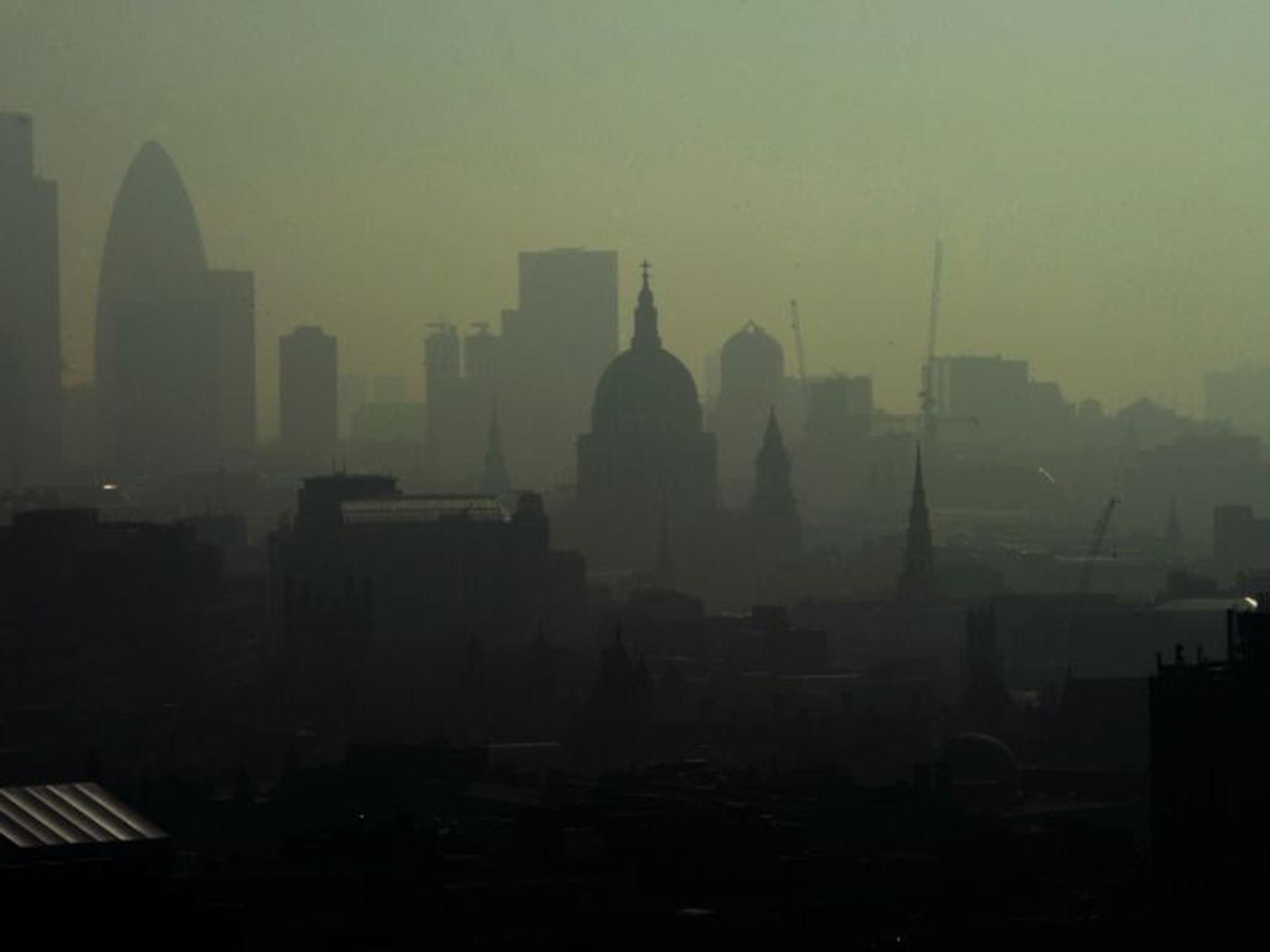Boris Johnson is planning a cruise ship terminal for London - but what about his promise for cleaner air?
Luxury liners will spew out tonnes of nitrogen dioxide into a capital already so polluted that it kills 5,000 Londoners a year

Your support helps us to tell the story
From reproductive rights to climate change to Big Tech, The Independent is on the ground when the story is developing. Whether it's investigating the financials of Elon Musk's pro-Trump PAC or producing our latest documentary, 'The A Word', which shines a light on the American women fighting for reproductive rights, we know how important it is to parse out the facts from the messaging.
At such a critical moment in US history, we need reporters on the ground. Your donation allows us to keep sending journalists to speak to both sides of the story.
The Independent is trusted by Americans across the entire political spectrum. And unlike many other quality news outlets, we choose not to lock Americans out of our reporting and analysis with paywalls. We believe quality journalism should be available to everyone, paid for by those who can afford it.
Your support makes all the difference.Unless you are cycling in Beijing, air pollution is largely invisible. Since the Clean Air Acts of the early 1950s banned burning coal in the city, London’s killer smogs have gone underground, to be replaced by vehicle emissions of every kind.
Air pollution can be deadly to those with heart and lung disease, asthma and all respiratory conditions. But death is rarely instantaneous. So the scientists have calculated that an average Londoner exposed to 2010 levels of pollution through their lives could lose around 16 months from nitrogen dioxide (NO2) pollution. This is around three hours loss of life each week. Put another way, the invisible toxic gas, which is the product of diesel combustion, contributed to the deaths of almost 5,000 people annually on top of the 5,000 who are hastened to the grave by better-known pollutants such a sulphur.
The Mayor of London, Boris Johnson, has often expressed his concern over the health effects of air pollution on Londoners and several future Mayoral hopefuls have singled it out as a campaign issue. It is therefore beyond puzzling that last week Boris approved highly controversial plans for a new cruise liner terminal at Greenwich, which will spew even more nitrogen dioxide into an area which already suffers from its proximity to the Blackwall Tunnel and is one of the worst polluted in London.
More like this:
Smash Britain's parking meters? Now there's a clever idea
Say goodbye to the idea of there being a 'property ladder' in London – it doesn't exist any more
“It will provide a major boost to tourism, benefit the local economy and further contribute to London’s status as a world leading city,” said Deputy Mayor Sir Edward Lister. The announcement mentioned “international, national and local emissions legislation, which requires vessels to burn less than 0.1 per cent sulphur emissions”; sulphur – but not NO2 emissions, mysteriously absent from the statement.
The Mayor’s consultants conceded that “there could be some moderate adverse impact on occasion”, but then the consultants don’t live in Greenwich. Oh – and £400,000 has been secured towards “ongoing environmental monitoring of air quality in Greenwich”. Hurrah!
The main issue appears to be the promoters’ insistence on fuelling berthed cruise ships with “dirty” onboard generators rather than buying power from onshore sources, which would be much cleaner but more expensive.
Ralph Hardwick is a mechanical engineer and a former Naval Scientist working for the MoD. “If I drive a small truck weighing more than 3.5 tons that does not meet the Euro 4 emission level into London's low emission zone I would receive a penalty charge of £1000”, he said. “Given that a cruise ship generates the same amount of pollution as 40 idling HGVs, will the GLA be charging the cruise operator £40,000 whenever a ship arrives at Greenwich?”
Ironically, the planning application also included permission to build 477 new flats, in three massive towers, next to the new terminal. Although the proposal includes a derisory 16 per cent "affordable" housing, it seems to have been waved through like an afterthought in the wake of the wonderful cruise ships.
I wonder whether the developers will tell prospective buyers of their luxury flats to expect heavy air pollution as a free extra? I somehow doubt it.
Join our commenting forum
Join thought-provoking conversations, follow other Independent readers and see their replies
Comments